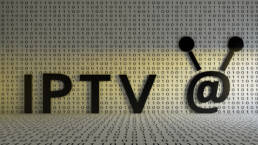Everything You Need to Know About IPTV
Private television networks that broadcast via cable, antenna, or the Internet expose viewers to a range of cost-effective options. One of them is IPTV, which is expanding every day.
As implied by the name, IP-TV (internet protocol television) uses the internet protocol to transmit television content. In a nutshell, IP TV can be defined as the process of converting encrypted or unencrypted channels into IP packets and transmitting them to the end user via internet access technologies. This means that instead of sending TV shows and movies via satellite, IP-TV sends them over your internet connection. How do I watch IPTV, then?
How Does IPTV Work?
Data transmission over the internet is the foundation of -. Today, a lot of people use IP TV, which quickly transmits audio and video data over the internet.
In terms of cost and usability, IP-TV differs from satellite broadcasts, which have advantages from various perspectives.
Typically, landlines are used to deliver the publishing company’s packages containing broadcast data to our homes.
In terms of accessibility, satellite and antenna technology is outdated because it is still more “analog” than IP TV service.
The majority of the time, the shows we watch are transmitted as radio waves that travel through the air and land on the roof antennas of our home.
These waves are changed back into electrical signals by the antenna. To produce sound and video, your television set decodes these broadcast signals.

What Do You Need for IPTV?
Through a number of procedures, the signals IPTV broadcast by television channels are converted to digital signals. With the aid of various distributors, this digital data is sent to IP TV over internet lines to enable the broadcast. However, you need a satellite receiver with IPTV support, a TV with Smart TV support, or a box with IP TV support for the data to reach the television with an internet connection.
What is IPTV Box?
In order for the television to reproduce and broadcast streaming signals from the internet protocol, IPTV boxes are devices that must be used. AVI or HDMI cables are typically used to connect these boxes to the TV. Additionally, a Wi-Fi connection can be used to directly connect to the most recent IP-TV boxes. Therefore, streaming IPTV to your TV doesn’t require much work on your part. Technology allows for everything to resolve itself!
Since computers are capable of reading data from the internet protocol, an IP-TV box is not necessary if you only intend to use IP-TV from your computer. If you have a computer and want to watch the broadcasts on your television as well, you can transfer the image from your computer to your television using an HDMI cable. You can easily re-setup IPTV in this manner.
What are the Advantages of IPTV?
- IP-TV offers a lot of benefits, including a flexible structure and a positive user experience. You are able to use it right away because it is simple to set up and operate. Simply purchase an IPTV box and attach it to your TV.
- Every day, the world begins to live a more digitally oriented lifestyle. Your transition to the digital television technology of the future is quickening because IPTV broadcasts are entirely digital!
- If a user uses more than one device, such as a phone, tablet, or computer, the IPTV service enables them to turn on all of them simultaneously. So if you’d like, you can watch two different channels at once.

